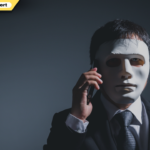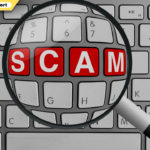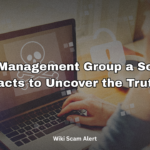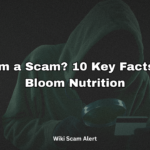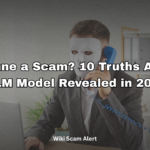If you’ve recently received a demand letter from Higbee and Associates accusing you of copyright infringement, you’re probably feeling confused, anxious, and maybe even a little angry. You’re not alone—this law firm has made a name for itself by sending out hundreds (if not thousands) of letters claiming unauthorized use of copyrighted content, especially images.
But here’s the big question: Is the Higbee and Associates scam real, or are they just enforcing the law in a way that feels… off? Some call it a legitimate legal move. Others insist it’s a carefully crafted intimidation tactic. In this guide, we’ll unpack everything you need to know about the Higbee and Associates scam, dig into how their copyright claims work, and explore whether these tactics cross the line into shady territory.
Overview of Higbee and Associates
Higbee and Associates is a California-based law firm that focuses heavily on copyright enforcement. Founded by Mathew Higbee, the firm has a history of sending out copyright demand letters to individuals, small businesses, bloggers, content creators, and website owners across the United States—and even internationally. While the firm offers a range of legal services, it’s best known (or infamous) for its aggressive copyright enforcement strategies.
Their most publicized work involves contacting people who have allegedly used copyrighted images—usually stock photos—without permission. In these cases, the firm claims to represent rights holders like photographers, media companies, or image licensing platforms. They send out letters demanding the removal of the image, along with payment—sometimes in the hundreds or thousands of dollars—as compensation.
The Higbee and Associates scam conversation started because of the high-pressure tone and legal threats used in these letters. While the firm is technically following legal protocol under the Digital Millennium Copyright Act (DMCA), critics argue their methods resemble “copyright trolling,” where the main goal is to generate quick settlements, not protect intellectual property.
Understanding the Higbee and Associates Scam
So, let’s talk about what people actually mean when they mention the Higbee and Associates scam. Is it truly a scam in the legal sense? Not exactly. But it’s a term used online to describe what many feel is an exploitative legal tactic.
The process usually starts when someone uses an image found on the internet, often under the assumption it’s public domain or royalty-free. Suddenly, that person receives a letter from Higbee and Associates demanding money for unauthorized usage. The letter usually threatens legal action if payment isn’t made quickly.
The scam-like feeling comes from:
- The harsh legal tone of the letter.
- The high settlement amounts demanded, which often seem disproportionate to the situation.
- The urgency to pay before the case is escalated to court.
- Lack of prior warning or contact—often, the accused had no idea they were infringing.
Many recipients have described the experience as intimidating and predatory, especially small business owners or bloggers who don’t have access to legal resources. The firm’s aggressive posture and demand for fast payment give it the air of a copyright scam, even though it technically operates within the law.
Common Tactics Used by Higbee and Associates
If you’ve been contacted by Higbee and Associates, you’ll recognize some of their tactics. While legal on paper, these methods are often perceived as bullying or coercive by those on the receiving end. Here’s a breakdown of the most common tactics used:
1. Demand Letters by Email and Mail:
The process begins with a detailed letter accusing you of copyright infringement. It includes your name, screenshots of the image in question, dates, and URLs to prove alleged usage. It demands immediate removal of the image and offers a settlement amount to avoid legal action.
2. Short Settlement Deadlines:
The letters usually provide a short time window (often 10–14 days) to settle. This is designed to create urgency and push recipients into paying quickly without seeking legal counsel.
3. Use of Scare Tactics:
The firm emphasizes potential court costs, attorney’s fees, and large financial penalties (sometimes up to $150,000 under U.S. copyright law). This is meant to make the settlement offer seem like the safer, cheaper alternative.
4. Bulk Campaigns:
Higbee and Associates doesn’t appear to be selective. They’ve sent thousands of nearly identical letters to individuals across various industries—bloggers, eCommerce store owners, nonprofit organizations, and even schools.
5. Follow-Up Threats:
If you don’t respond, they often follow up with more letters and emails, escalating the tone with each message. Some recipients report phone calls as well.
6. Using Online Portals for Payment:
They often direct recipients to an online portal (e.g., www.higbeeassociates.com/resolve) to settle the claim. This adds legitimacy to the process but also contributes to the scam-like feel of the interaction.
These tactics are what spark debates around the higbee and associates scam, as they often appear more focused on extracting settlements than genuinely resolving legal disputes.
Are Higbee and Associates Legitimate?
Here’s the tricky part: yes, Higbee and Associates is a real law firm. They are registered and active, with licensed attorneys and real legal cases under their belt. They do represent actual copyright holders, and they have successfully won judgments in court in some instances.
So why do so many people question their legitimacy? Because their methods, while technically legal, walk a fine line between lawful enforcement and ethical gray area. Their mass-mailing campaign and intimidating style of communication have led many to question whether they’re practicing law—or just running a settlement mill.
Let’s break it down further:
- They’re not scammers in the legal sense. They have the right to represent clients who own copyrighted material.
- Their tactics raise ethical concerns, especially when the targets are unaware of the copyright issue or can’t afford legal defense.
- Their aggressive communication can mislead recipients into believing they’ve broken the law in a serious way—even if the case is minor.
This leads us to the concept of “copyright trolling”—a term used to describe entities that weaponize copyright law to generate revenue rather than protect creative rights. Many people consider Higbee and Associates copyright claims to fall under this category, which is why “higbee and associates copyright scam is it a scam” has become such a heavily searched phrase.
Higbee and Associates Copyright Scam Explained
Now let’s dive deeper into the core issue—the so-called Higbee and Associates copyright scam. This phrase refers not to the legality of their actions but to the way those actions are perceived by the public.
The copyright scam model usually follows this path:
- Copyright owner (like a photographer) signs an agreement with Higbee and Associates.
- The firm uses reverse image search tools (like Pixsy or TinEye) to identify where the image is used online without proper licensing.
- They send a demand letter, often requesting a settlement fee between $500 and $5,000, depending on the image and perceived damages.
- If the accused refuses to pay or responds with questions, the firm escalates with threats of litigation and potential damages.
- In some cases, they do file lawsuits, especially if they believe the infringer has financial resources or if the image use is on a commercial site.
This strategy capitalizes on the fact that most people don’t want to risk going to court. It’s cheaper to pay and move on, even if the claim feels unfair. That’s why many recipients describe the experience as a copyright scam—it feels like extortion dressed up in legal jargon.
Some key points critics argue:
- The images in question are often low-value stock photos, not high-end intellectual property.
- In many cases, the recipient thought the image was royalty-free or Creative Commons.
- There’s little room for negotiation—the letters usually don’t allow discussion or explanation.
In essence, the Higbee and Associates copyright scam isn’t a classic scam like a phishing email or fake IRS call. But the combination of mass enforcement, legal threats, and inflated settlement demands makes it feel like a trap—especially to the average internet user who may not understand the nuances of copyright law.
Real-Life Experiences with Higbee and Associates
If you search online forums, Reddit threads, or copyright law discussion groups, you’ll find countless real-life stories of people who have received demand letters from Higbee and Associates. These stories vary widely, but they all have one thing in common: they’re filled with confusion, stress, and a strong sense of being bullied into paying.
Let’s look at a few examples.
One small business owner shared how they used a stock image found through Google Images on their website, assuming it was free to use. Months later, they received a letter from Higbee and Associates demanding $1,200 in damages. The letter included a screenshot of their site, the image in question, and a strict deadline. The business owner removed the image immediately but was still told they needed to pay or face legal action.
Another user on Reddit explained how they posted a meme containing a copyrighted photo on their blog. They got a $3,000 settlement demand and were terrified. After researching and consulting an attorney, they negotiated the amount down to $300—but only after weeks of back-and-forth and extreme anxiety.
In another case, a nonprofit organization using an image for educational purposes was also targeted. They had no commercial intent, no knowledge of copyright infringement, and no legal support. Still, Higbee and Associates wouldn’t back down and continued to send threatening letters.
These real-life experiences with the Higbee and Associates scam narrative show just how far-reaching this issue is. It’s not just big corporations getting hit—it’s individuals, bloggers, churches, teachers, and small businesses. Many people describe the experience as overwhelming, unfair, and intentionally deceptive, reinforcing the perception of a copyright scam disguised as legal enforcement.

How to Respond to a Higbee and Associates Letter
So, you’ve received a letter from Higbee and Associates and your heart is racing. Don’t panic—this section will walk you through what to do next.
1. Stay Calm and Don’t Respond Immediately
It’s natural to want to write back right away, especially if you feel accused unfairly. But before you do anything, take a breath and analyze the situation. These letters are designed to get a quick emotional reaction.
2. Verify the Claim
Is the image really copyrighted? Did you actually use it? Go back and review your site, your blog, your social media posts—wherever they said the image appeared. Sometimes, images are added by third-party plugins or contributors without your knowledge.
3. Take Down the Image Immediately
Whether the claim is legitimate or not, remove the image as soon as possible. This won’t erase the demand, but it shows you’re not intentionally infringing.
4. Don’t Acknowledge Guilt in Writing
Responding with “Sorry, I didn’t mean to” or “I didn’t know” can be used against you. Even a casual apology could be interpreted as an admission of guilt in legal terms.
5. Consider Consulting an Attorney
Many attorneys offer free consultations and can help you decide whether the claim has merit. They might even draft a response or negotiate on your behalf.
6. Negotiate the Settlement (If Needed)
Some people have successfully negotiated the Higbee and Associates copyright scam letters down to a smaller settlement. They may initially ask for $1,000 or more, but there have been cases where that was reduced to $200–$500 with firm but polite negotiation.
7. Document Everything
Keep records of every email, letter, screenshot, or call. If the case escalates, having a full trail can help you defend yourself.
8. Don’t Ignore the Letter Entirely
This is important: while you shouldn’t rush to respond, don’t ignore the letter altogether. If you do, you risk legal escalation, including a possible lawsuit. You want to be informed and strategic—not passive.
Responding to a Higbee and Associates demand is all about staying calm, smart, and informed. You have options—and you’re not powerless.
Do You Have to Pay Higbee and Associates?
Let’s get to the million-dollar question (or hopefully much less): Do you actually have to pay Higbee and Associates? The answer? It depends.
First, remember this: receiving a demand letter does not automatically mean you owe money. It’s a legal claim, not a court order. A letter from Higbee and Associates is not a judgment—it’s a starting point in a potential legal dispute.
Here’s how you can assess whether payment is necessary:
1. Is the Claim Legitimate?
If you knowingly used a copyrighted image without a license, and they represent the actual rights holder, they do have the right to pursue damages. However, the amount they demand might be way more than what the law would actually award in court.
2. Is It Worth Fighting?
Even if the claim is weak, some people choose to settle to avoid legal stress. Others fight back and win—or negotiate a lower settlement.
3. Can You Negotiate the Amount?
Yes. There’s usually room to negotiate, especially if you’re a first-time offender, didn’t profit from the image, or used it unintentionally.
4. What If You Ignore the Letter?
Ignoring a Higbee and Associates letter can be risky. They may send follow-ups, escalate the tone, and in rare cases, file a lawsuit. It’s rare—but not impossible. That’s why it’s better to respond strategically or with legal help.
5. Consider Legal Counsel Before Paying
Never pay blindly just to make it go away. Consult a copyright attorney who can advise whether the letter is enforceable or just part of the Higbee and Associates scam strategy.
In summary: No, you don’t always have to pay—but you can’t ignore it either. Evaluate, verify, and respond wisely.
Legal Options When Dealing with Higbee and Associates
If you’ve been hit with a copyright claim from Higbee and Associates, you may feel like you have no choice but to pay. But that’s not true—you have legal options, and you don’t have to go it alone.
Here are your main legal pathways:
1. Hire a Copyright Attorney
Many copyright attorneys are familiar with Higbee and Associates tactics. They can:
- Assess the claim’s legitimacy
- Respond on your behalf
- Negotiate or dispute the amount
- Help you avoid saying something incriminating
Some lawyers offer flat-fee services just to handle these cases.
2. Respond Yourself (Cautiously)
If hiring a lawyer isn’t an option, you can reply with a non-admitting response, such as:
“We are in the process of reviewing your claim. We take intellectual property concerns seriously and are evaluating the best course of action.”
3. File a DMCA Counter-Notice (if applicable)
If your content was removed from your platform due to a takedown request, and you believe you were within fair use, you can file a DMCA counter-notice. This can sometimes reverse the takedown, though it may provoke further action.
4. Request Proof of Ownership
Ask for documentation showing that Higbee and Associates actually represents the copyright holder and that the claimant has exclusive rights. This puts the burden of proof back on them.
5. Take the Case to Court (as a Last Resort)
This is rare, but in some cases, people fight back in court and win—especially if the image use falls under fair use or non-commercial educational use. It’s costly but sends a message to copyright trolls.
Having legal options gives you power. Don’t let a threatening letter convince you otherwise. The Higbee and Associates scam perception is based on fear tactics—and knowledge is your best defense.
What Makes the Higbee Copyright Letters Seem Like a Scam?
Let’s be honest—the moment you open that demand letter from Higbee and Associates, it feels like a scam. Why? Because the tone, the urgency, and the dollar amount all scream “pressure tactic.”
Here’s what specifically gives off scam vibes:
1. Lack of Prior Contact
Most reputable firms or rights holders will first ask nicely, maybe send a warning or takedown notice. Higbee and Associates often skip straight to threats.
2. Inflated Settlement Amounts
A $20 stock photo shouldn’t lead to a $3,000 demand. But that’s exactly what happens. It feels disproportionate and exploitative.
3. Cookie-Cutter Letters
Hundreds of people report receiving identical letters, sometimes with the wrong dates or outdated screenshots. This makes the process feel automated and mass-produced—not personal or thoughtful.
4. Aggressive Tone
Legal letters often use formal language, but these take it up a notch—implying that court is imminent and that you could face huge penalties if you don’t pay immediately.
5. Fast Payment Demands
The inclusion of online portals and short payment deadlines makes the process feel more like a shakedown than a legal claim. It mimics the urgency you’d see in phishing scams.
6. Targeting of Nonprofits, Teachers, and Small Blogs
This is where it really hits home. If a firm truly cared about intellectual property, would they go after teachers, volunteers, or bloggers who don’t even profit from their work?
So while technically legal, these letters often feel unethical, which is why so many people call it a Higbee and Associates scam or a copyright troll tactic.
Red Flags in Higbee and Associates’ Approach
When analyzing the tactics used by Higbee and Associates, several red flags jump out that make many people question their legitimacy. These red flags are key indicators that contribute to the widespread perception of a Higbee and Associates scam.
1. Immediate Demand for Money
One of the biggest red flags is that the first contact from Higbee and Associates is usually a demand letter, not a warning or a takedown notice. The tone is aggressive, and they often demand payment within days. That kind of legal pressure without prior notice screams “scare tactic.”
2. Lack of Personalization
These letters are often template-based. They include generic information, sometimes incorrect dates, and vague claims of copyright ownership. They rarely provide clear proof that the copyright holder granted them exclusive rights to pursue legal action.
3. Exorbitant Settlements for Minor Infringements
Imagine using a $10 image accidentally and then being asked to pay $1,500. That’s not about justice—that’s about profit. These inflated settlement demands are a huge red flag and feel more like extortion than fair copyright enforcement.
4. Pressuring Nonprofits and Small Creators
Higbee and Associates often go after teachers, students, nonprofits, bloggers, and even churches—people who are unlikely to have legal teams or large budgets. Targeting these groups seems more like bullying than justice.
5. Use of Threatening Legal Language
The letters are designed to instill fear. Phrases like “you may be subject to substantial statutory damages” or “we are prepared to proceed with litigation” are thrown in early—before any effort to discuss or resolve the issue.
When you put all these red flags together, it’s easy to see why so many people consider this operation a copyright troll scheme—and why the Higbee and Associates scam label sticks.
How Higbee and Associates Targets Online Content
The internet is a vast ocean of images, videos, and creative works—and Higbee and Associates are fishing for opportunities. Here’s how they find and target content creators with copyright claims.
1. Image Crawling Technology
Higbee and Associates, or the image rights holders they represent, use reverse image search software like Pixsy, Copytrack, or even Google Images to scan the web for unlicensed image use. These bots don’t sleep. They crawl every corner of the web, from WordPress blogs to small business websites.
2. Automated Detection of Infringement
Once an image match is found, it’s flagged in a system. The software generates screenshots and metadata that are then compiled into a legal-looking document, which becomes the basis of their demand letter.
3. Scraping Social Media and Forums
Many users report getting letters after sharing memes or photos on platforms like Facebook, Instagram, or forums. If your account is public, you’re vulnerable. Even deleted content can be archived and used against you.
4. Going After Dormant Content
One of the most frustrating aspects is that Higbee and Associates often go after old, inactive content. Some people receive letters for blog posts or images posted five or ten years ago. Even if you removed the image, if it was once there, you could be targeted.
5. Mass-Mail Strategy
Once matches are collected, Higbee and Associates sends out demand letters in batches, often with minimal legal vetting. It’s a numbers game—if enough people settle quickly, they make significant profit with minimal effort.
This methodical, automated, and aggressive strategy explains why the Higbee and Associates copyright scam is so widespread and hard to escape. They’re not targeting just big fish—they’re targeting everyone.
Preventing Copyright Claims from Higbee and Associates
Prevention is your best defense. If you never receive a letter from Higbee and Associates, you never have to worry about responding to one. Here’s how to stay clear of copyright traps.
1. Only Use Licensed or Original Images
This is rule number one. Never pull images straight from Google, Pinterest, or random websites. Instead:
- Use royalty-free sites like Unsplash, Pexels, or Pixabay.
- Purchase images from reputable platforms like Shutterstock or Adobe Stock.
- Keep receipts and licensing documentation in a dedicated folder—just in case.
2. Add Attribution Where Required
Even free images sometimes require credit to the creator. If the license calls for attribution, add it clearly near the image or in the footer of your website.
3. Regularly Audit Your Content
If your site has been live for years, go back and review old posts, images, and downloads. Remove anything questionable or unverified.
4. Use Reverse Image Search on Your Own Content
Want to double-check your image’s origin? Drop it into Google’s reverse image search. You might be shocked at how often images are reused or falsely labeled “free.”
5. Train Your Team or Contributors
If you work with guest bloggers, interns, or social media managers, make sure they know the rules of copyright. A single mistake from a team member could result in a Higbee and Associates copyright scam letter.
6. Avoid Reposting Viral Memes or Editorial Content
Just because something is popular doesn’t mean it’s legal to repost. Memes often contain copyrighted material. Avoid reposting unless you’re sure it’s safe.
Being cautious today can save you thousands of dollars and a legal headache tomorrow. When it comes to Higbee and Associates, an ounce of prevention is worth a pound of demand letters.
Is Higbee and Associates a Scam or Not?
This is where things get tricky. Is Higbee and Associates a scam in the traditional sense—like phishing or identity theft? No. They’re a real law firm, and they operate under the legal framework of copyright enforcement.
But are their tactics morally questionable, manipulative, and borderline exploitative? Many would argue yes.
Here’s the breakdown:
Legally Speaking:
Higbee and Associates do represent real copyright holders and pursue real claims. Technically, what they’re doing isn’t illegal. It’s allowed under U.S. copyright law.
Ethically Speaking:
What makes many people cry “scam” is how they do it. They:
- Use fear to extract payments
- Demand excessive amounts
- Target vulnerable individuals
- Often don’t go to court—just threaten to
So while they’re not a scam by legal definition, the “Higbee and Associates scam” label persists because of their reputation for copyright trolling—pursuing marginal or minor infringements for profit rather than justice.
If it walks like a scam, talks like a scam, and sends you a demand letter that looks like a scam… well, you get the idea.
What Lawyers Say About the Higbee and Associates Tactics
Legal professionals across the internet have shared strong opinions about how Higbee and Associates operates. Here’s what some attorneys say when asked about these tactics:
1. “It’s Legal, But Barely Ethical”
Many lawyers admit that the firm operates within the law, but they call the methods “exploitative” or “predatory.” Some even compare them to patent trolls, who file frivolous lawsuits just to scare people into settling.
2. “They Rely on Fear and Ignorance”
Attorneys who specialize in copyright law often point out that Higbee and Associates relies on the recipient not knowing their rights. The average person doesn’t know that statutory damages might not apply to innocent infringers—or that actual damages could be as low as $50.
3. “They Rarely Litigate”
Several legal experts highlight the fact that Higbee and Associates sends out thousands of letters, but only files lawsuits in a tiny fraction of cases. This suggests their business model is built on settlements, not trials.
4. “Most Cases Can Be Negotiated or Dismissed”
Lawyers advise that many of these cases can be resolved for a fraction of the original demand—or even dismissed entirely—especially when fair use, educational use, or lack of willful infringement can be demonstrated.
5. “Don’t Pay Without Talking to a Lawyer”
The overwhelming consensus is this: never pay immediately. Legal experts recommend consulting an attorney, even for a brief review, before responding or negotiating.
In short, lawyers see the Higbee and Associates scam narrative as rooted in aggressive legal strategy, not criminal fraud. But they agree: if you receive one of these letters, you should know your rights before you open your wallet.
Alternatives to Settling with Higbee and Associates
So you got a letter from Higbee and Associates—demanding hundreds or even thousands of dollars for alleged copyright infringement. What now? Is paying your only option? Absolutely not.
Here are several alternatives to consider before handing over your hard-earned money:
1. Don’t Panic – Analyze the Claim
First things first: breathe. Review the letter carefully. Check:
- The copyright holder’s name
- The alleged infringing image or content
- The date and context of use
Oftentimes, people find errors or weak evidence, which can be used in your favor.
2. Remove the Content Immediately
If you are still hosting the allegedly infringing image or media, take it down. While this won’t necessarily eliminate liability, it may show good faith and reduce the aggressiveness of the claim.
3. Negotiate the Settlement Amount
Many have reported success in negotiating settlements for far less than what was initially demanded—sometimes even 10% of the original amount. You don’t need to accept the first number they throw at you.
4. Respond with a Firm but Polite Rebuttal
If you believe the claim is unjust, respond in writing. Deny liability if appropriate, and request:
- Proof of ownership
- Chain of title
- Evidence that your use wasn’t covered under fair use
This puts the burden of proof back on them.
5. Consult a Copyright Attorney
Even if just for a quick review, having a legal expert in your corner can be empowering. Many lawyers offer flat-fee consultations for this type of issue and can draft a strong response on your behalf.
6. Ignore It? Risky, But Possible
Some choose to ignore the demand letters altogether, betting that Higbee and Associates won’t actually file a lawsuit. While this can work in some cases, it’s risky—especially if the claim is legitimate or if you ignore court documents later.
Remember, settling is not the only path forward. The Higbee and Associates scam thrives on fear and quick reactions—don’t give them that satisfaction.
How Copyright Trolls Like Higbee and Associates Operate
To understand the Higbee and Associates copyright scam, it’s crucial to grasp the bigger picture of how copyright trolls work.
1. Copyright Troll Defined
A copyright troll is an entity—often a law firm or a company—that uses copyright laws to extract settlements from alleged infringers, not necessarily to protect creative rights but to profit from legal intimidation.
2. Acquiring Copyright Rights Just to Enforce
Some trolls acquire copyrights after the content has already been distributed or published widely online. Their only intent? To track down “infringers” and demand money.
3. High-Volume, Low-Effort Enforcement
They send thousands of automated letters, threatening legal action and demanding payment. Only a small number of these actually lead to court. It’s all about hitting a wide net and hoping a few fish pay up.
4. Relying on Lack of Knowledge
They target individuals who don’t understand copyright law or their rights. The goal is to create fear—most people settle just to avoid the threat of a lawsuit, even if they did nothing wrong.
5. Using Scare Tactics
Phrases like “we may file a lawsuit” or “statutory damages up to $150,000” are meant to pressure you. In reality, very few people ever face court cases or those sky-high penalties.
This is why the Higbee and Associates scam label has become so common—because they mirror these copyright troll behaviors almost perfectly.
Understanding Your Copyright Rights and Fair Use
You’ve probably heard of fair use, but do you know how it applies when Higbee and Associates comes knocking?
1. What is Fair Use?
Fair use is a legal doctrine that allows limited use of copyrighted material without permission from the rights holders. It typically applies when the use is:
- Educational
- Commentary or critique
- News reporting
- Non-commercial or transformative
2. Key Fair Use Factors
Courts look at several things when evaluating fair use:
- Purpose of use (commercial vs. non-commercial)
- Nature of the original work
- Amount of the content used
- Effect on the market value of the original
3. Innocent Infringement
If you can show that you didn’t know the image was copyrighted and took action to remove it, you may qualify as an innocent infringer—this can drastically reduce or eliminate penalties.
4. Public Domain & Creative Commons
If the content is in the public domain or licensed under Creative Commons, you may have had every right to use it. But be careful: even Creative Commons licenses have restrictions!
5. Ask for Proof
Don’t assume the demand letter is accurate. Ask for:
- Proof they own the copyright
- Evidence that their license allows them to collect fees
- Screenshots and timestamps showing your alleged use
Knowing your rights helps dismantle the fear tactics used in the Higbee and Associates copyright scam narrative.
Should You Hire a Lawyer If Contacted by Higbee and Associates?
If you’re wondering whether to call a lawyer after receiving a letter from Higbee and Associates, here’s a simple answer: yes—at least consult one.
1. You Don’t Have to Hire an Expensive Firm
Many copyright lawyers offer flat-fee consultations—some as low as $100. They can evaluate your case, explain your rights, and even craft a response letter that protects you.
2. A Lawyer Can Save You Thousands
Trying to handle this on your own might lead to overpaying or unintentionally admitting guilt. A lawyer knows how to negotiate and may be able to get the case dismissed or settled for far less.
3. Lawyers Understand the Loopholes
Did you post a Creative Commons image? Did the original license allow reuse with attribution? An attorney will know how to spot these legal gray areas and use them in your favor.
4. Legal Responses Are Taken More Seriously
Higbee and Associates may push back against individuals, but they’re less likely to escalate when a licensed attorney steps in. It’s about power dynamics—and lawyers level the playing field.
5. Peace of Mind is Priceless
Even if you don’t end up in court, knowing you’ve handled it right can eliminate stress and anxiety.
Hiring legal help, even briefly, is one of the smartest moves you can make when facing the Higbee and Associates copyright scam scenario.
Who Are Higbee and Associates?
Background of the Law Firm
Higbee and Associates is a California-based law firm that specializes in areas like copyright enforcement, defamation, and criminal defense. While they’re a legitimate law firm, they’ve made waves online for one controversial area: copyright demand letters.
Their Role in Copyright Claims
Their approach? They typically send letters to website owners or bloggers alleging the unauthorized use of copyrighted images, usually on behalf of photographers or stock photo companies. These letters often demand hundreds—or even thousands—of dollars in damages.
Why Are People Calling It a Scam?
The Spike in Copyright Demand Letters
Over the past few years, thousands of individuals and small businesses have received emails or physical letters from this firm. The tone is urgent, often with a deadline to pay up or face a lawsuit. That’s where people start to wonder: Is the Higbee and Associates scam real?
Personal Stories from People Who Got These Letters
Plenty of online forums (Reddit, Quora, Facebook groups) are filled with confused and frustrated people saying things like:
“I used a photo in a blog post three years ago and now they want $1,200?!”
Or…
“I thought the image was royalty-free—how is this even legal?”
These stories fuel the perception that the Higbee and Associates copyright scam is more about scaring people into paying than seeking justice.
Understanding the Copyright Law Involved
What Copyright Infringement Actually Means
Using an image, video, or article without permission can technically be considered copyright infringement—even if you didn’t do it on purpose. Yep, even a forgotten blog post from 2017 could land you in hot water.
How It’s Enforced by Firms Like Higbee and Associates
Law firms like Higbee act on behalf of creators to enforce copyright law. But critics argue that their aggressive tactics push legal and ethical boundaries.
What Is the Higbee and Associates Copyright Scam?
Typical Patterns in the Alleged Scam
Here’s how it usually goes:
- You receive a letter or email demanding payment.
- There’s a strict deadline (often within a week).
- You’re told you’ve violated copyright and could face a lawsuit.
- You’re offered a “settlement amount” to avoid court.
Common Red Flags to Watch Out For
- The letter looks templated or automated.
- The language is overly aggressive or threatening.
- The amount seems excessive for a single image.
Higbee and Associates: Scam or Legit Legal Practice?
Are They a Real Law Firm?
Yes. This is not an imaginary group sending out fake threats. Higbee and Associates is a real law firm—but that doesn’t mean their approach sits well with everyone.
What Critics and Supporters Are Saying
Critics call their tactics “predatory.” Supporters argue they’re protecting artists’ rights. The truth likely lies somewhere in between.
How the Scam Allegations Spread Online
Forums, Reddit, and Social Media Buzz
Search “Higbee and Associates scam” on Reddit or any legal forum, and you’ll find hundreds of threads. Some people have paid. Others ignored the letter. A few got sued.
Major Online Complaints and Case Studies
Several businesses have shared their experiences publicly. While a small number escalated into lawsuits, most ended with settlements or were dismissed altogether.
What To Do If You Receive a Higbee and Associates Letter
Stay Calm—Don’t Panic
First things first: don’t freak out. Many of these letters are intentionally intimidating. But that doesn’t mean you’re doomed.
Verify Legitimacy Before Responding
Check:
- Is the image in question really copyrighted?
- Did you use it?
- Can you find a license or source?
Conclusion
So, is it a scam or just aggressive legal enforcement? That depends on how you define the word “scam.” Legally speaking, Higbee and Associates is a legitimate law firm, and copyright enforcement is a real issue. But the way they go about it—the intimidating tone, the steep settlement demands, and the sheer volume of letters sent—can make it feel like a money-grabbing scheme, especially to unsuspecting bloggers, content creators, and small business owners.
FAQs
1. Is Higbee and Associates a scam or a real law firm?
They are a real law firm, but their aggressive copyright enforcement tactics make many people question their ethics.
2. Can I ignore a copyright demand letter from them?
It’s not recommended. Ignoring the letter could result in escalation. Always respond wisely and preferably with legal help.
3. What should I do if I used an image I didn’t know was copyrighted?
Gather any documentation you have. Consult a lawyer to see if you can challenge the claim or settle for less.
4. Do people really get sued by Higbee and Associates?
In rare cases, yes. Most claims are settled out of court, but lawsuits have occurred.
5. How can I avoid future copyright issues online?
Only use licensed content, keep proof of permissions, and use copyright-checking tools regularly.



